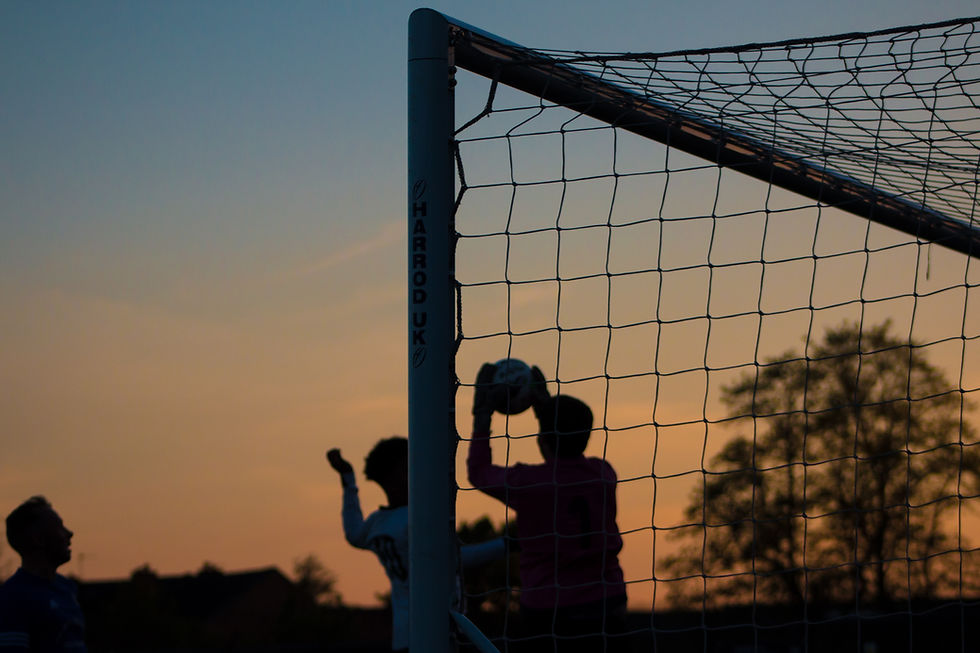Social Distancing + Quarantine. 6 Tips to Avoid Sleep Disruption.
- thesleepcoach, Erik Spahn

- Mar 17, 2020
- 3 min read
Updated: Apr 1, 2021
Finding yourself indoors, socially isolated, stressed-out and feeling unsafe, and/or with disrupted routines? All can negatively effect your sleep. That, in turn, will weaken your immune system. What can we do?

Here are 6 Productive Sleep Tips to help:
1. Keep a semblance of daylight/nighttime cycle by having your home well lit during the day and dark at night. Use actual sunrise and sunset times as your guide for best results.
2. Vitamin D is important to us both directly and indirectly in that our gut microbes require it to thrive and manufacture B vitamins and co-factors that are essential for good sleep! Many people are D deficient already and less time outside means even less vitamin D from sun exposure. Have your doctor check your vitamin D levels and supplement as appropriate. Acceptable blood levels are 30-100 but optimal levels are now considered to be between 60-100. (At one time I had labs of 38 which is not considered a deficiency but I chose to supplement in order to get into the higher range of “normal”). If you take a calcium supplement you would be wise to consider taking vitamin K in addition. Vitamin D helps our bodies absorb calcium but vitamin K directs the calcium to where it is needed. Check with your doctor before starting any new supplement and always take as instructed on the bottle. There is some evidence that taking vitamin D at night may cause sleep disruption, so take your D during the day, when the sun is high, as nature intended.
3. Undoubtedly your social and work schedules have been disrupted. It is important to maintain a schedule. The timing of our work, leisure, and self-care activities cue us as to when to sleep and when to be awake. Try to keep a regular schedule and go to bed and wake up at the same time every day.
4. Make time for socializing every day. Facebook does not count for our purposes here. Phone calls, where we hear and interact in real-time, are good. Video calls (Face Time, Skype, Google Hangouts) are even better! Social interaction is calming and makes us feel safe, especially when we vocalize and can see others’ faces. This is a very good way to hack the negative stress feedback loop and get out of Fight or Flight mode which is not conducive to sleep. We need to feel safe in order to sleep deeply.
5. Bring nature indoors. Environmental psychologists have found that being in nature has many physical and psychological benefits. Getting out may be difficult or unwise at this time. So my perennial tip to “bring nature indoors” has become more important than ever! This can be accomplished by A) Getting and caring for houseplants, B) Smelling essential oils derived from plants. Try woodsy smells like Eucalyptus, Cedar Wood, Cypress, or florals like Geranium, Neroli, or Patchouli. Always use essential oils as directed and check for pet toxicity. C) Use sounds and sights from nature. For example: listen to sounds of the forest, rainfall, ocean waves, watch peaceful nature programs, enjoy a fish aquarium or a fish aquarium screen saver. Connecting to nature, in even some small way, can decrease anxiety which is a common cause of insomnia.
6. You may have many family members of all ages home all day. This can create a shortage of space and privacy leading to a need to break one of the primary rules of sleep hygiene: “Don’t Use Your Bed/Bedroom for Wakeful Activities”. Ideally and historically, simply laying in bed was a cue enough to our brains that “it’s time to sleep”. Many people will now find themselves in a similar situation to my clients who live in studio apartments or dorm rooms. In other words, not working in the bed or in the bedroom may not be a luxury available to you anymore! You will need to create an additional cue for your brain to associate with “sleep time”. Whatever you do must be done consistently. We can train our brains to associate anything with anything, Pavlov's famous experiment showed us that. However, some simple bedtime hacks you can use, alone or in combination, are: Deep breathing; Massaging your feet/temples/shoulders and/or neck (warm oil with lavender or chamomile scent is perfect for this); Praying; Writing your “to do” list for the next day; Writing a “gratitude” list; Gargling; Yawning (just pretending is okay, you may even get a real yawn, especially if you do it in front of a mirror); Laughing (you could read a joke or two out of a book of jokes). Again, consistency is key.
Wishing you peaceful dreams and Productive Sleep,
Erik Spahn, MA, OT/L
Integrative Sleep Coach
© 2020 by Erik Spahn. All Rights Reserved.






I find I'm very nervous and irritable during the day and started having nightmares at night. Dreamed I had to go to the hospital and no one could come visit. That dream haunted me for days. Trying to do most of your calming tips and things feel more manageable. Thank you.
Agree. Now is not the time to stumble regarding sleep. I am familiar with the research, having published some of it myself. Your method is comprehensive and admirable in that it actually applies and integrates the new research whereas medical practice often takes 10 years to apply new research. With that in mind, you might want to specify D3 and K2 because there are still doctors prescribing D2 which does not confer the same benefits.